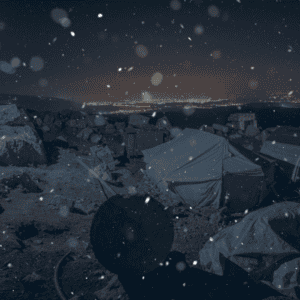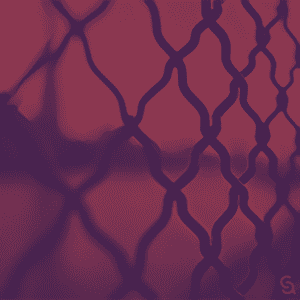
Editor’s Note: For the season of Lent, Ed Cyzewski has created a daily email list that shares quotes from Trappist monk and contemplative prayer author Thomas Merton. Each Friday here on the CSA website, Ed will share a few reflections on Merton’s wisdom for us today based on these readings.
As Thomas Merton examined himself and his contributions to the spiritual life, he saw someone who was fragile, in need of God’s help, and still very much determined to share God’s life and peace with others. Seeking to take on the big issues of his time, such as peacemaking and environmentalism, Merton frequently examined the state of his soul and his need for solitude.
In order to have the inner capacity to face the darkness and suffering in the world, Merton reasoned that he needed the stability of silent prayer and the inner transformation of God in his life. This was an uneasy balancing act for someone who felt called to be fully present for God in solitude and still very much engaged with issues of his day.
Withdrawal and Engagement
“The rush and pressure of modern life are a form, perhaps the most common form, of its innate violence. To allow oneself to be carried away by a multitude of conflicting concerns, to surrender to too many demands, to commit oneself to too many projects, to want to help everyone in everything, is to succumb to violence. The frenzy of our activism neutralizes our work for peace. It destroys our own inner capacity for peace. It destroys the fruitfulness of our own work, because it kills the root of inner wisdom which makes work fruitful.”
― Thomas Merton, Conjectures of a Guilty Bystander
Before the rise of social media and 24-hour news cycles, Merton believed that activists could be rendered ineffective by trying to do too much and spreading themselves too thin. In order to bring peace and redemption to others, they needed an inner peace and redemption from God to transform their lives.
…activists can be rendered ineffective by trying to do too much and spreading themselves too thin.
While some today may be at risk of this kind of service frenzy that leaves us exhausted and disconnected from others, we also face another challenge in our service. With constant access to the worst events in the world, we face the real challenge of compassion fatigue.
Much like gun violence has led to a kind of collective shrug with the reports of another mass shooting, our constant exposure to another refugee crisis or famine may result in a sense of despair or disconnection from the suffering in the world when specific, targeted action is required.
Merton sought to establish a rhythm of withdrawal into solitude and then engagement with the challenges of today so that he could remain stable and ready to act.
We Cannot Measure God’s Life in Us
“The spiritual life is now no longer the result of our own, stumbling, limited, conscious efforts, but is produced by the hidden action of God within us, and almost always in spite of us.”
― Thomas Merton, The Inner Experience
How easy is it to become tripped up in the pursuit of certain spiritual outcomes or to reach certain goals in our spiritual lives, as if God has a measuring stick. Perhaps it may feel like God is playing games with us by keeping our inner transformation and spiritual growth hidden from us, but there is a mercy in this for us and for others. We can be saved from constantly measuring and evaluating ourselves if we pursue God in faith and trust in the grace at work in us.
Most importantly for others, we are saved from comparisons and hierarchy, as we can’t separate ourselves from others or manipulate them as if we have accessed some great spiritual power that is closed off to them. We all have the gift of God’s presence and the ability to be present for God’s love.
As we all start from the same place of faith in God’s mercy and love, we can be saved from setting ourselves above others or feeling that we are somehow inadequate.
Peacemaking Begins in Our Souls
Merton hails solitude as a kind of spiritual Eden, re-framing the wilderness wanderings of Israel as a blessing rather than punishment:
“God’s plan was that [the Israelites] should learn to love Him in the wilderness and that they should always look back upon the time in the desert as the idyllic time of their life with Him alone.”
― Thomas Merton, Thoughts in Solitude
It’s tempting to think of solitude as a kind of loss or restraint from all that we hope to accomplish. Most days it’s challenging to stop and become still before God while our calendars fill and notifications pop up, one after another.
Perhaps we even think of solitude as a kind of punishment or time out. When Merton looked back at the people of Israel wandering in the wilderness, he didn’t see the wilderness as a negative experience. It was a season of focus and freedom.
Viewed through Merton’s eyes, we could say that a season in the wilderness simplifies our lives for the inner transformation God hopes to accomplish in us. After seeing how the people of Israel struggled with faithfulness, justice, and mercy, we could even suggest that they needed a more solitude in the wilderness, not less.
In Silence, We Hear God and Choose Freedom
“The ears with which one hears the message of the Gospel are hidden in man’s heart, and these ears do not hear anything unless they are favored with a certain interior solitude and silence.
In other words, since faith is a matter of freedom and self-determination—the free receiving of a freely given gift of grace—man cannot assent to a spiritual message as long as his mind and heart are enslaved by automatism.
He will always remain so enslaved as long as he is submerged in a mass of other automatons, without individuality and without their rightful integrity as persons.”
—Thomas Merton, Thoughts in Solitude
Since we face a choice each day to receive God’s loving presence or to become swept away in our to-do list, Merton suggests a habit of daily silence lest a state of constant reaction and distraction becomes a habit. Our immersion in digital devices and social media makes a constant state of automatism not only possible for us but at times desirable to social media and technology companies.
Remaining grounded in the love of God, drawing from the resources of God in our lives, and becoming fully present for others will only happen with intention and the cultivation of new habits and old spiritual practices that can help us find the stability we need.
Perhaps we can’t do everything we desire or that we imagine others expect of us. Yet, if we find the stable rhythm of solitude, presence before God, and Spirit-empowered action, we can draw from a deep well of loving presence that can transform us and how we share God’s peace and mercy with others.
 Ed Cyzewski is the author of Flee, Be Silent, Pray: Ancient Prayers for Anxious Christians, A Christian Survival Guide: A Lifeline to Faith and Growth, and other books. He writes weekly at This Kinda Contemplative Life at Patheos, and he lives in Western Kentucky with his wife and children.
Ed Cyzewski is the author of Flee, Be Silent, Pray: Ancient Prayers for Anxious Christians, A Christian Survival Guide: A Lifeline to Faith and Growth, and other books. He writes weekly at This Kinda Contemplative Life at Patheos, and he lives in Western Kentucky with his wife and children.


